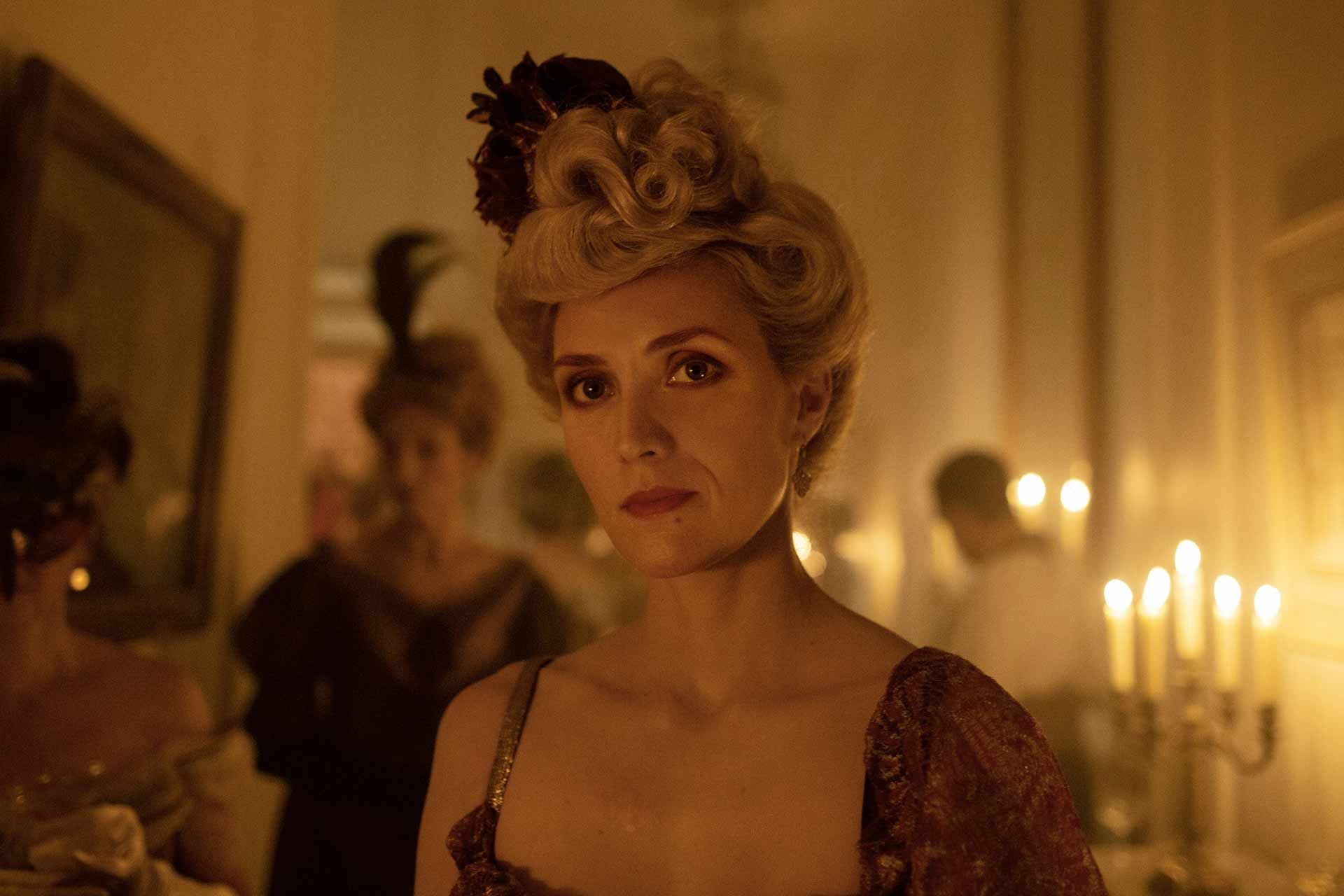Played out against the background of “L’Affaire Dreyfus,” the Paris Police must solve the grisly murders of two women at the turn of 20th Century France – as we view the scandalous, corrupt, malicious and vitriol-saturated “Belle Epoque.” The fictional drama at the Paris Prefecture, takes place at the same time as the Dreyfus Affair – the most ignominious expression of French antisemitism – which overshadowed every aspect of life from the 20th Century to the present.
Captain Alfred Dreyfus, an Alsatian-born Jew and French artillery officer, was convicted of espionage for relaying French secrets to Germany and sentenced to life imprisonment on Devil’s Island in 1894 where he spent five years. Captain Dreyfus has become the universal symbol of a miscarriage of justice led by public opinion reinforced by the press while the government of Felix Faure and the Army under Lieut. Colonel Sandherr, Generals Mercieu, Gonse and Bois de Pelleau, were supported by Catholic traditionalists who opposed secular, liberal and republican men. French Army Major Ferdinand Walsin Esterhazy was identified as the real spy (never found guilty or convicted) in 1896 by General Piquart; nevertheless, Hubert Joseph Henry forged additional documents to cover up Piquart’s discovery and to frame Dreyfus again.
The impassioned efforts of novelist, Emile Zola’s open letter, “J’Accuse” (Jan. 1898) in “L’Aurore,” pressured the government to re-open the case. The ensuing scabrous political and judicial turmoil engulfed French society in scandals between Dreyfus supporters (Dreyfusards) including Anatole France, Henri Poincare and Georges Clemenceau, and anti-Dreyfusards led by Louis Dausset, Gabriel Syveton and Henri Vaugeot founders of “La Ligue de la Patrie Francaise.” Henri Rochefort and Charles-Marie Mauras (politician, author, critic) founded and published “L’Action Francaise,” the monarchist, anti-parliament/-Masonic and anti-Semitic newspaper conflating right-wing nationalism with Catholic prejudices. Louis and Jules Guerin, antisemitic propagandists, founded “Ligue antisémite française” and the weekly “L’Antijuif.”
Paris Police 1900 is an eight-part series that perfectly illustrates “the City of Light” as the bastion of crime, venality and debauchery while two competing factions of the Paris police – the Prefecture and the Surete Generale led by Commissaires Lepine and Puybaraud, respectively, try to solve two murders using the latest police methods including Bertillonage (the real Bertillon testified at Dreyfus’ trial), fingerprinting, a coroner and photographer at crime scenes, and the medical examiner’s report. The real Puybaraud, a master of secrecy, employs a vast network of informers, including the real Madame Steinheil, to keep tabs on a broad range of political agitators (communists, anarchists, freemasons, socialists and Jews). Although their methods vary (the historical Lepine modernized French police work by instituting forensic science, ballistics and bicycle patrols), both commissaires fought the intrinsic violence emphasized throughout this series by placing real characters (Jeanne Chauvin is based on the first female French lawyer) in real events subtly and sensitively portrayed by a talented cast in this cinematically-shot period thriller.
This scrupulously-researched and thoughtfully-dramatized big-budget series created by Fabien Noury, the graphic novelist whose post-Noir world sensibility infuses every scene, is visually captured by the stylized vocabulary of cinematographers and editors, and especially the directors – Juien Despaux and Frederic Bakekdjian. The producer, Francoise Guyonnet, views this series, based on real people and events, as an allegory of evil related to angst vis-a-vis time and place within a broader social indifference.
EDITOR’S NOTE: We happily discovered Dr. Pearl Brandwein while reviewing MHz Choice subscriber feedback on our programs and, after reading a half dozen or so of Dr. Brandwein’s insightful reviews, all of us here at MHz Choice had the same thought: We need to get the good doctor to write for us! Enjoy! -MHz Choice
About the author:
A lover of Romance languages and cultures, Dr. Pearl Brandwein has a Certificate in French Culture and Civilization from the Sorbonne. She then earned both her Masters’ degree in French Language/Literature and Ph.D. in Comparative Literature from New York University. Dr. Brandwein’s areas of academic expertise include the Renaissance and the Faust Figure in European Literature in addition to 19th and 20th Century Drama. Her other interests include writing about Holocaust Literature.
Dr. Brandwein began her teaching career at Princeton University followed by faculty positions at other academic institutions. In addition to French, she has also taught German, Latin, English Composition and ESL to corporate executives. After academia, she held numerous positions in the public and private sectors working as an Editor/Instructor/Administrator and as a PR professional and business communications executive directing editorial and marketing initiatives for EU clients.
She is a cineaste and a lover of Film Noir, Westerns and foreign films as well as a theatre and opera buff; she also attends concerts, lectures, ballet performances, museum and gallery exhibitions. In her rare spare time, she reads voraciously.
Want to get MHz Choice Premiere announcements sent to your inbox?
Sign up for our free newsletter here!
MHz Choice is available in the U.S. & Canada. Free 7-day trial then $7.99/mo.
Subscribe at mhzchoice.com.







